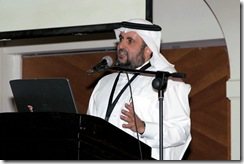Unconfirmed reports from Tanzania suggest that Kuwait-listed, Saudi-backed Hits Telecom is facing difficulties in investing in the rollout of its unified licence network, and as such there is now a process underway to see whether an alternative investor, possibly from Russia, might be enticed to take over the investment in the licensee.
Hits Telecom’s Bahabri has set an ambitious target of counting 50 million subscribers by 2015
Hits Africa had planned to launch a GSM network last October, but to date has yet to come to market. Last year the company’s CEO, Talaat El Lahham forecast the operator could garner some 600,000 subscribers in its first full year of operations, saying it would launch 2G services, with an initial network investment of US$300 million.
Speaking to Comm. last year, Lahham explained that in Tanzania, Hits Africa possessed licences to offer GSM as well as WiMAX services. “We intend to launch first with a GSM network in the initial stages and at a later time we will rollout a WiMAX network for data services,” Lahham said at the time. “We are looking to launch the GSM network before the end of this year. We have already selected the vendor for the network deployment – Huawei – and we have completed all the network planning,” Lahham added.
Hits Telecom is chaired by Sultan Bahabri, who last year told Comm. that he was looking to see his company add 50 million subscribers across all its networks by 2015. Bahabri said the company already has concessions in Liberia, Equatorial Guinea, the Democratic Republic of Congo, as well as in Tanzania. Hits Telecom also launched a MVNO in Sao Paulo in Brazil in July last year.





